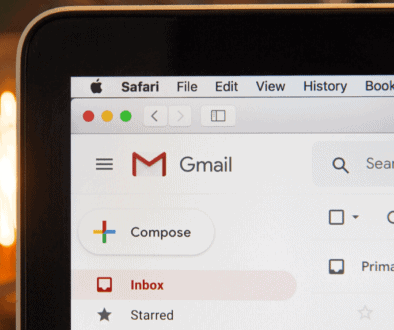Cyber Security Tips For Businesses
Cyber crime and digital attacks on large businesses, smaller organisations and individuals are on the rise. Ranging from basic email phishing scams to elaborate ransomware and data theft. We all need to be far more aware and proactive about monitoring our online engagement and hyper-vigilant about spotting and reporting potential cyber security issues before they become more problematic.
There is lots of advice out there, but what are the essential tips for business cyber security? How can your staff monitor emails and devices for possible cyberattacks and how can your team prevent hackers from gaining back door access to your most important data and operating systems?
In this fast paced and evolving digital landscape, cyber attacks are not just an issue for big companies. Small and medium sized enterprises (SMEs) are regularly targeted by cyber criminals too. In fact, evidence suggests that smaller companies and individuals may be more vulnerable to a cyber attack than a large corporation due to a lack of resources, fewer opportunities for staff training and less manpower.
Finding, researching and applying appropriate cyber security tips to suit your business, staff and customers can feel complex, but it’s important to avoid complacency. Many businesses rely on a misplaced confidence that a cyber attack will never affect them, then when it does, they scramble to deal with the fallout.
More than anything it’s important to stay alert by enforcing good password management, keeping your network secure and up-to-date and perhaps most important, implementing forward-thinking disaster recovery strategies and strong business cybersecurity tactics.
Cyber crime and digital security should be part of every business’s planning strategy, regardless of size or industry. Cyber crime is without a doubt one of the fastest-growing and most lucrative kinds of crime in the world, so unless you want your company’s name to end up in the headlines, it’s important to follow the best cyber security tips for businesses available today.
4 Essential Cybersecurity Tips for Small Businesses
Enforce Good Password Management
More than 80 per cent of adults reuse the same, identical password across multiple online accounts – in 2022, password was still the most used password with other common passwords including qwerty, 123456 and guest. Simply adding 01 or ! to the end of your password does not make it much more secure.
Ensuring that you and your team use secure passwords that are varied and changed regularly is one of the simplest ways to stop your business from falling victim to cyber crime.
Strong passwords are entirely unique and should contain a large combination of letters, numbers and symbols. They should also never be shared with anyone under any circumstances, including management or IT teams. Your passwords should never be written down – this includes writing them down on a Post-it and sticking it to your monitor.
If you or your team struggle with remembering long, complex passwords, consider investing in password management software. This can be sourced and set up by your IT support partner, who will also be able to advise you on the best practices to keep your business digitally secure. This can include regular data backups so that in the case of a cyber attack you can get back up and running again quickly and rescue your intellectual property.
Create a Cautious Environment
Educating your staff and customers with well researched, up-to-date information on cyber safety and preventing digital crime is a strong strategy against cyber attacks.
There are millions of hackers and scammers out there who will try phishing scams or take advantage of spelling mistakes in common URLs to direct people to harmful domains and websites. They may also hack your own site, use fake adverts, compromise reputable sites or even pretend to be a colleague. This means it’s vital for your staff to be aware of dangers threatening the security of your business.
As a business owner, it’s your responsibility to create an environment where employees feel like they can complete tasks safely and without the risk of a security breach. They should also be able to question the legitimacy of potential phishing emails, report digital issues and freely seek second opinions without fear of ridicule or reprisal.
Remember – it’s better to be cautious and spend a few minutes with your employee verifying a source than have ransomware lock your entire network, steal customer information or hack your website.
It’s also important to extend the same caution to any external devices. Infected flash drives, external hard drives and even smartphones can cause malware to spread. As a result, devices should be scanned before they’re connected to your network, including when employees connect personal devices to your company’s Wi-Fi. An expert IT support provider can help you put strategies in place to tackle this aspect of digital business security.
Make Regular Offsite Backups
Ensuring your data is regularly backed up can mitigate some of the damage caused by a cyber attack, although this will ultimately be determined by the quality and scale of your backups as well as the speed at which your network can be recovered.
At Acronyms, we recommend the Backup Rule of Three to our clients. Also known as the 3 – 2 – 1 Rule, it outlines a backup strategy that ensures a business is storing at least three copies of its network and data at any one time. These backups should be stored on at least two different media types, with at least one being offsite.
Optimise Your Software and Hardware Security
There are thousands of software and hardware products on the market designed to meet all sorts of business needs including digital safety and to enhance your cybersecurity.
First of all, you should limit access to software to team members who actually need and use it, and you should have strong protocols in place to indicate those staff who are permitted to install and update software and hardware within your business. You may want to employ an IT solutions provider to take on complete responsibility for your software and any patches or updates.
Different cyber threats require different cyber security measures. Given the abundance of free security software, it may be tempting to cut costs on your software and hardware security. However, free versions won’t always offer you the same protection as full software packages that are regularly updated. There are some cost effective UK government backed schemes to help you boost your digital security and you can find out more in our “What is Cyber Essentials?” article.
At Acronyms we offer a range of cyber security packages designed to keep your organisation safe. You can find more information here on our cybersecurity solutions.
Create a Disaster Recovery Plan
Technology evolves very quickly which means that cyber security threats are developing all the time. To ensure strong and resilient business cybersecurity, your disaster recovery plan needs to be efficient, relevant to your company and up-to-date. There is no endpoint to your plan, it should be a series of actions and solutions that evolve to meet your cyber security needs.
As a business owner, it’s your responsibility to ensure your staff know what to do in the case of a cyber attack. They should be familiar with your company’s disaster recovery plan and ready to implement it at a moment’s notice.
Essentially, a disaster recovery plan is a set of instructions for you and your employees to follow in the event of a digital disaster, a security threat or cyber attack. Having a bespoke disaster recovery strategy in place is vital for businesses of all shapes and sizes.
Whatever format your disaster recovery plan takes, it is important that you keep it updated. Your employees need to be well-versed in the processes and steps outlined within it. Lack of awareness on appropriate measures to take can leave you open to greater digital harm, damage to your business and loss of income.
Whilst there are good resources to help plan for potential disasters, it’s important to remember that your business is unique. This means your budgets, resources and IT infrastructure are different to that of other businesses and you cannot rely on someone else’s plan to cover your company – especially in the event of a major disruption such as data theft, malicious access, online hacking or network cloning.
Cyber Security Services and Solutions at Acronyms
Robust cyber security should be considered one of the primary goals of your business – cyber crime is not a fad and the importance of safeguarding your network, IT infrastructure and data is not going to disappear.
Choosing to ignore the threat of cyber crime, or neglecting your cyber security responsibilities, will only be detrimental to your business in the long term. Leaving you, your staff and customers open to the threat of data theft, fraudulent emails, scams and hacking.
Acronyms have helped thousands of satisfied customers, boost and maintain their business cyber security since 2003. We have an experienced team of consultants, technicians and engineers who offer a diverse range of innovative security solutions and can implement the bespoke cyber security strategy you need to feel safe, secure and protected.
If you have any questions about improving your cyber security or would like to know more about the cybersecurity services we offer then please contact our helpful team for a no-obligation consultation.
Alternatively, you might find the following resources helpful:
The Importance of IT Security
What are the Benefits of Creating a Disaster Recovery Plan?
What is Offsite Backup?





